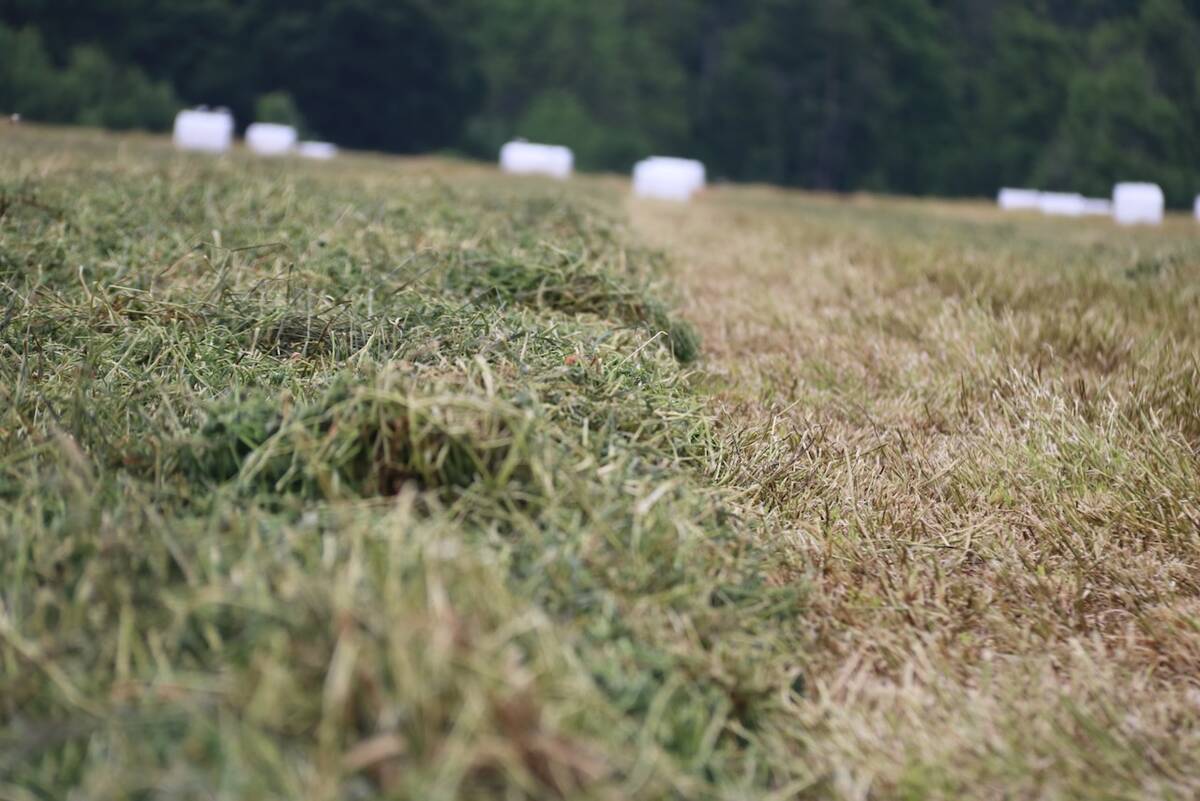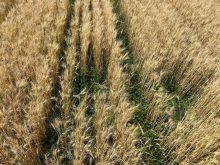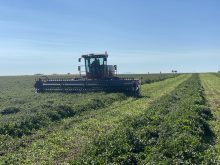Your wheat and barley dollars are now directly funding the Canadian International Grains Institute. Find out what Cigi is doing for you
After surveying farmers this past May the Canadian International Grains Institute (Cigi) discovered that many weren’t all that familiar with the Winnipeg based organisation and knew very little about what it does.
That’s hardly surprising because for the past forty years Cigi has primarily played a support role in providing technical marketing services to the Canadian Wheat Board. “Cigi never had a need to promote itself because the Canadian Wheat Board was 70 per cent of its business,” says Cigi’s executive director, Earl Geddes. “Now farmers are funding us directly and they not only need to know, but have a right to know, what we are doing. So one of the messages that came out of the survey is that we need to get Cigi a little bit better known in the farm community and develop some performance metrics that can show farmers the value of the dollars that they are leaving with Cigi to fund its activities.”
Read Also

New high-performance forage training program to launch in 2026
A new Canadian Forage and Grasslands Asssociation high-performance forage program will be a resource for farmers, agronomists and others in the forage sector.
Check-off funds Cigi
As of April 1, 2012 the Canadian Wheat Board ceased to fund the activities of Cigi. For the next five years, Cigi will be funded via a voluntary check-off on Western Canadian wheat and barley administered by the Alberta Barley Commission. Cigi receives 15 cents of the 48 cents a tonne check-off from wheat.
Cigi’s survey showed that, for this financial contribution, farmers expect Cigi to focus on three key areas: expand market opportunities for wheat, foster customer relationships and ensure that the brand value of Canadian wheat is maintained internationally.
In essence, this means business as usual for Cigi, which has always done these things, as well as providing educational and technical programming to assist the grain industry. In a free marketing environment Cigi has become an independent institute, but its purpose remains largely unchanged.
“Our mission remains the same and that is to create profitable opportunities for Canadian field crops,” says Geddes. “Although we still have a heavy emphasis on wheat, we are working increasingly with other crops. Every program we run is designed to create profitability in the system, where Canadian field crops are involved, for farmers, marketers and buyers.”
Cigi programs
Cigi’s programs are designed to help position Canadian field crops so the industry can take advantage of quality premiums and increase market access. In the past those programs were largely driven by the needs of the Canadian Wheat Board, whereas now they are directed with input from two advisory committees, one made up of Western Canadian farmers and the other of industry representatives from bodies such as the Western Grain Elevator Association and the Canadian Grains and Oilseeds Exporters Association.
“We sit down with these committees and say, based on our customer contacts and the enquiries we are getting, where is there the greatest need to do promotion, technical training or technical programming to support Canadian field crops?” says Geddes. “We design a list of programs that are four months out and we go to the advisory committees and say: ‘Is this the kind of activity that you think is a good use of your check-off dollars and supports your efforts in the marketplace?’ If they like the projects we do them and if they don’t like them we won’t.”
The activities are many and varied. They include hosting existing and potential customers from around the globe; answering their questions about the Canadian grain industry and helping them find new applications for Canadian grains.
Cigi has a number of facilities and technical programs — many of them unparalleled worldwide — which help find specific uses for Canadian crops. They include milling, baking, pasta processing and extrusion facilities, analytical and sensory evaluation laboratories, which provide technical expertise, support and customized training to the domestic industry and customers around the world. For example, Cigi is currently hosting 12 Saudi Arabian millers, who are spending six months being trained at its milling facility. Cigi also performs all technical crop evaluations for the English baker Warburtons, one of its long-standing, commercial customers. Cigi’s world-class noodle program has attracted companies from all over the world to learn how to use Canadian wheat in noodle making. Its pulse initiatives are looking at ways to find more uses for pulses.
New marketing environment
With all of its facilities and programs Cigi continues to concentrate on its three main roles: providing customer care and contact, technical programming and maintaining and promoting the quality brand image that Western Canadian wheat enjoys on the world scene. It has been playing a big role, during the transition to an open marketing system, in reassuring customers worldwide that it’s business as usual when it comes to the quality of Western Canadian grain. The concerns vary from country to country and company to company. Recent delegations from Japan and Mexico were concerned that Canada’s quality assurance and variety registration systems would remain strong and continue to provide high quality products and also sought a better understanding of how the new marketing structure for Canadian grain will work.
“We have been heavily involved on the customer care side and telling people that we know they are concerned and that the quality assurance side is still intact,” says Geddes.
Cigi is about to embark on its annual new crop missions to Southeast Asia, Latin America, Europe, the Middle East and North Africa to meet with companies and explain the functional properties of this year’s crops. As part of the mission Cigi has invited the Canadian Grain Commission to deliver keynote presentations about the strength and continuity of Canada’s quality assurance system to allay fears that it may go the way of the Australian system, which largely fell apart once the Australian Wheat Board was dismantled four years ago.
If anything, says Geddes, customers need to appreciate that they have a stronger role to play in directing Canada’s quality assurance programs. “The Canadian Wheat Board used to represent customers at a number of the meetings and on committees involved in the quality assurance process, whereas now customers themselves have a direct opening to make their comments heard in the Canadian grain industry,” he says. “This is a new responsibility that they have never had before, but it’s also a new opportunity.”
Cigi is involved in co-ordinating efforts to develop a long-term international strategy with the Canadian wheat industry. In the past it was the Canadian Wheat Board that took care of issues like market access, trade challenges or quality concerns and negotiated at the political level to shape government policies. Now it’s up to the industry itself to create a body that will be responsible for these things.
As the cereal industry organizes, itself Cigi is filling the gaps to maintain the functionality of the system until it can be directed by a formal entity. “There is a move right now to pull all of the players together to form a wheat industry or a cereal industry council,” says Geddes. “In the midst of all of that there is a whole new marketing challenge for our exporters and some new decisions for growers. What Cigi has attempted to do is make sure there are as few gaps as possible during this transition period. Cigi is an independent institute and we don’t have a particular view about how the industry should organize or what they should do, but we are trying to make sure those things that the industry needs to continue to do and is going to want to have positioned when they are organised, are done. And at that point we can have input coming into our institute on a regular basis to make sure we are engaged in the kind of activities that the industry feels is necessary to take it forward in its long term strategy.”
There is lots of evolution to come, says Geddes. “But Cigi is still here to provide the same technical education, training and support that it did in the past and it’s still here to provide all of the trouble shooting and the customer care that it has in the past,” he says.
And there are more commercial customers walking through Cigi’s doors all the time. “They can’t go anywhere else in the world and get the combination of services that we provide,” says Geddes. “We are very well positioned to provide an excellent service to our grain industry for farmers and exporters and people involved in the system, but also very well positioned to increase our activity on the commercial side. It makes us more sustainable as an independent institute going forward.”
For more information about Cigi visit http://cigi.ca/ or follow them on Twitter @CigiWinnipeg. †















